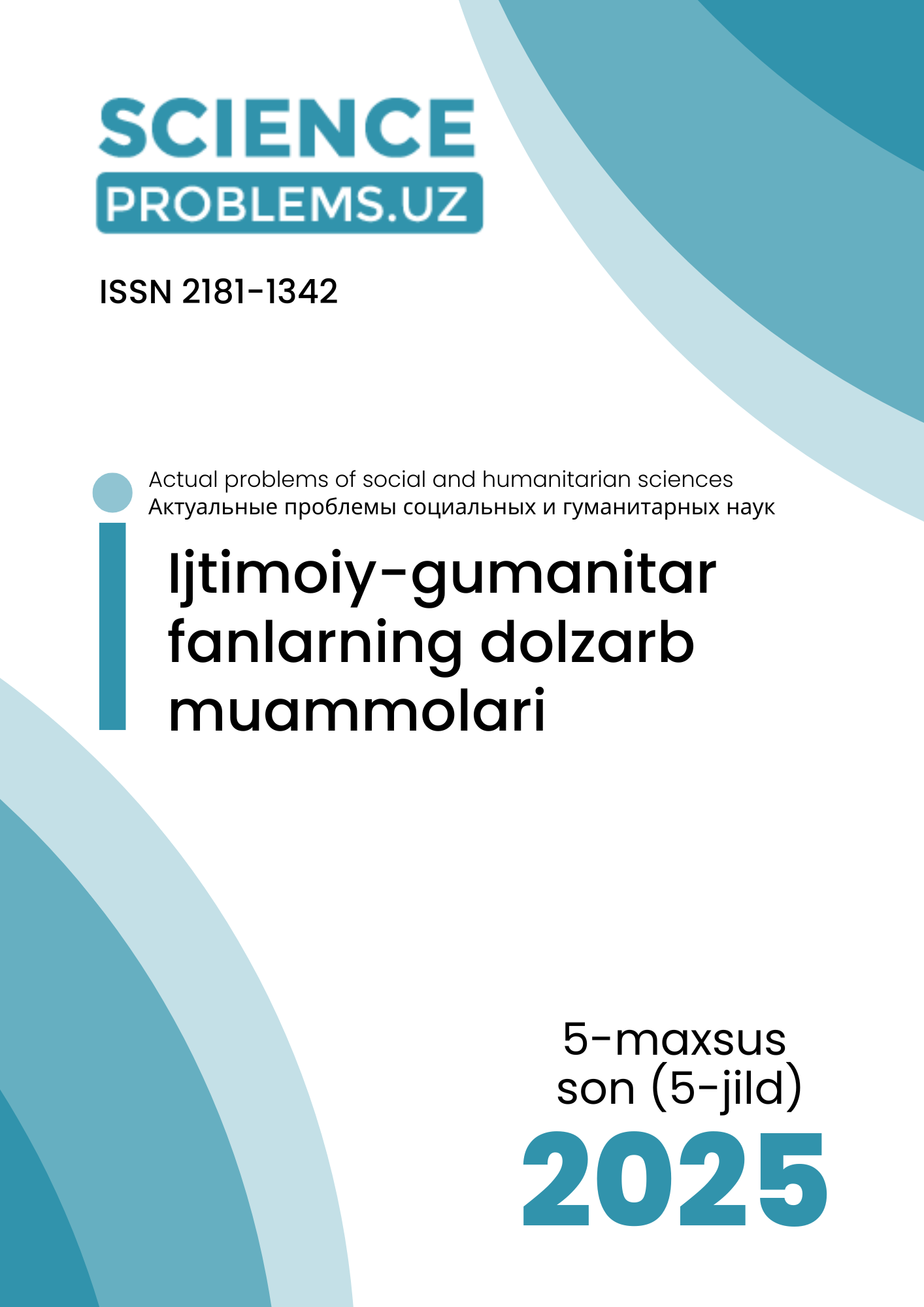BOGʻLOVCHILAR VA TINISH BELGILARINING PRAGMATIK KUCHI: OʻZBEK VA INGLIZ TILLARI MISOLIDA
Kalit so'zlar
https://doi.org/10.47390/SPR1342V5SI5Y2025N29Kalit so'zlar
bogʻlovchilar, tinish belgilar, pragmatika, sintaksis, oʻzbek tili, ingliz tili, kommunikatsiya, ifoda vositalari.Annotasiya
Mazkur maqolada oʻzbek va ingliz tillarida bogʻlovchilar va tinish belgilarining pragmatik funksiyalari oʻrganiladi. Bogʻlovchilar grammatik struktura yaratishdan tashqari, nutqda soʻzlovchining niyati, munosabati va hissiyotini ifodalashda muhim rol oʻynaydi. Ular lokutsion, illokutsion va perlokutsion darajalarda maʼno hosil qilishga xizmat qiladi. Tinish belgilar esa, ayniqsa ingliz tilida, bu jarayonda mustaqil ishtirokchi boʻlib, vizual va emotsional ishoralarni yetkazadi. Tillararo qiyosiy tahlil ushbu unsurlar orqali muloqotning chuqur qatlamlarini yoritishga xizmat qiladi.
Manbalar
1. Bobojonov Sh. Hozirgi o‘zbek adabiy tilining sintaksisi. – Toshkent: Fan nashriyoti. 2008.
2. Fraser B. «What are discourse markers?» Journal of Pragmatics, 31(7), 1999. – P. 931–952.
3. G‘ulomov A., & Asqarova M. O‘zbek tilining stilistikasi. – Toshkent: O‘qituvchi,1987.
4. Halliday M. A. K., & Hasan R. Cohesion in English. – London: Longman, 1976.
5. Mirzayeva D. The role of conjunctions in Uzbek and English comparative studies. Philology Research Journal, 12(3), 2020. – P. 45–52.
6. Nunberg G. The Linguistics of Punctuation. CSLI Lecture Notes. Stanford: CSLI Publications. 1990.
7. Quirk R., Greenbaum, S., Leech G., & Svartvik J. A Comprehensive Grammar of the English Language. – London: Longman. 1985.
8. Truss L. Eats, Shoots & Leaves: The Zero Tolerance Approach to Punctuation. – London: Profile Books, 2003.








